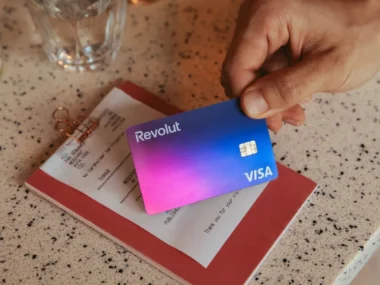If you’re finding it hard to get a loan because of a low credit score or limited credit history, a guarantor loan might be a solution worth considering. A guarantor loan is a type of personal loan where someone else—the guarantor—agrees to cover your repayments if you cannot.
This extra security lowers the risk for the lender and can make borrowing easier for people who might otherwise be refused.
Guarantor loans are common in the UK and some parts of Europe, especially for people who are new to credit or have faced financial difficulties in the past. They allow you to access money for things like home improvements, debt consolidation, or unexpected expenses when other loans are out of reach.
How Does a Guarantor Loan Work?
When you apply for a guarantor loan, you’ll need to find someone willing to act as your guarantor. This person typically needs to be a close family member or trusted friend with a good credit history and a stable income. The guarantor’s role is to guarantee your loan repayments.
If you make your payments on time, the guarantor isn’t affected. But if you miss repayments or default on the loan, the lender can require the guarantor to step in and pay what you owe. This makes the guarantor legally responsible, so it’s a big commitment for whoever agrees to guarantee your loan.
Guarantor loans often come with fixed monthly payments and set terms, making budgeting easier. The loan amount can range from a few hundred to several thousand pounds, depending on the lender and your guarantor’s financial situation.
Who Can Benefit from a Guarantor Loan?
Guarantor loans are mainly designed for people who struggle to get approved for standard personal loans. This includes:
-
People with poor or no credit history
-
Young borrowers just starting to build credit
-
Those who have been refused credit elsewhere
-
New immigrants or people without a UK credit record
If your credit score is low, guarantor loans offer a chance to borrow money and rebuild your credit by making regular repayments.
What Does the Guarantor Need to Qualify?
Your guarantor will usually need to:
-
Be at least 21 years old and under 75 years old
-
Have a good credit history without missed payments or defaults
-
Have a steady income, often demonstrated through payslips or bank statements
-
Be a UK resident with a permanent address
-
Understand that they are legally responsible for your loan if you fail to pay
It’s important that both you and your guarantor fully understand the responsibilities before signing up.
How to Apply for a Guarantor Loan
Applying for a guarantor loan is straightforward but involves more steps than a normal loan:
-
Find a guarantor. This is often a family member or close friend with good financial standing.
-
Research lenders. Use comparison websites like MoneySuperMarket or Compare the Market to find the best deals.
-
Check eligibility. Both you and your guarantor must meet the lender’s criteria.
-
Complete the application. You and your guarantor will provide personal and financial details.
-
Review the loan terms carefully. Understand the interest rate, repayment schedule, and what happens if you miss payments.
-
Wait for approval. Decisions can be quick, sometimes within 24 hours.
-
Receive funds. Once approved, the money is transferred to your bank account, usually within a few days.
What Are the Costs and Risks?
Guarantor loans often have higher interest rates than standard personal loans, reflecting the increased risk for lenders. APRs can range from around 20% to over 50%, so it’s vital to shop around and compare offers.
Missing repayments doesn’t just affect your credit score—it can lead to your guarantor being chased for the debt. This can strain personal relationships and cause financial hardship for both parties.
Be aware of any fees, such as arrangement fees, late payment charges, or early repayment penalties.
How Can Guarantor Loans Help Build Credit?
Making regular, on-time repayments on a guarantor loan helps improve your credit history. As payments are reported to credit reference agencies, responsible borrowing and repayment increase your credit score.
Improved credit opens doors to better loan terms, credit cards, and mortgages in the future.
Alternatives to Guarantor Loans
If you’re unsure about a guarantor loan, consider:
-
Secured loans, which use assets as collateral. These might have lower interest rates but require ownership of an asset.
-
Credit builder loans, offered by some credit unions and online lenders, designed specifically to improve credit history.
-
Credit cards designed for poor credit, though these may have higher rates.
Conclusion
Guarantor loans can be a valuable financial tool if you need to borrow but don’t qualify for standard loans. They offer a way to access funds and build credit, but they come with significant responsibilities—for both you and your guarantor.
Choosing a guarantor loan means understanding the full cost and risk involved. Make sure you and your guarantor communicate openly and understand the commitment.
If you’re careful, use the loan wisely, and make repayments on time, a guarantor loan can be a stepping stone to better financial health.


